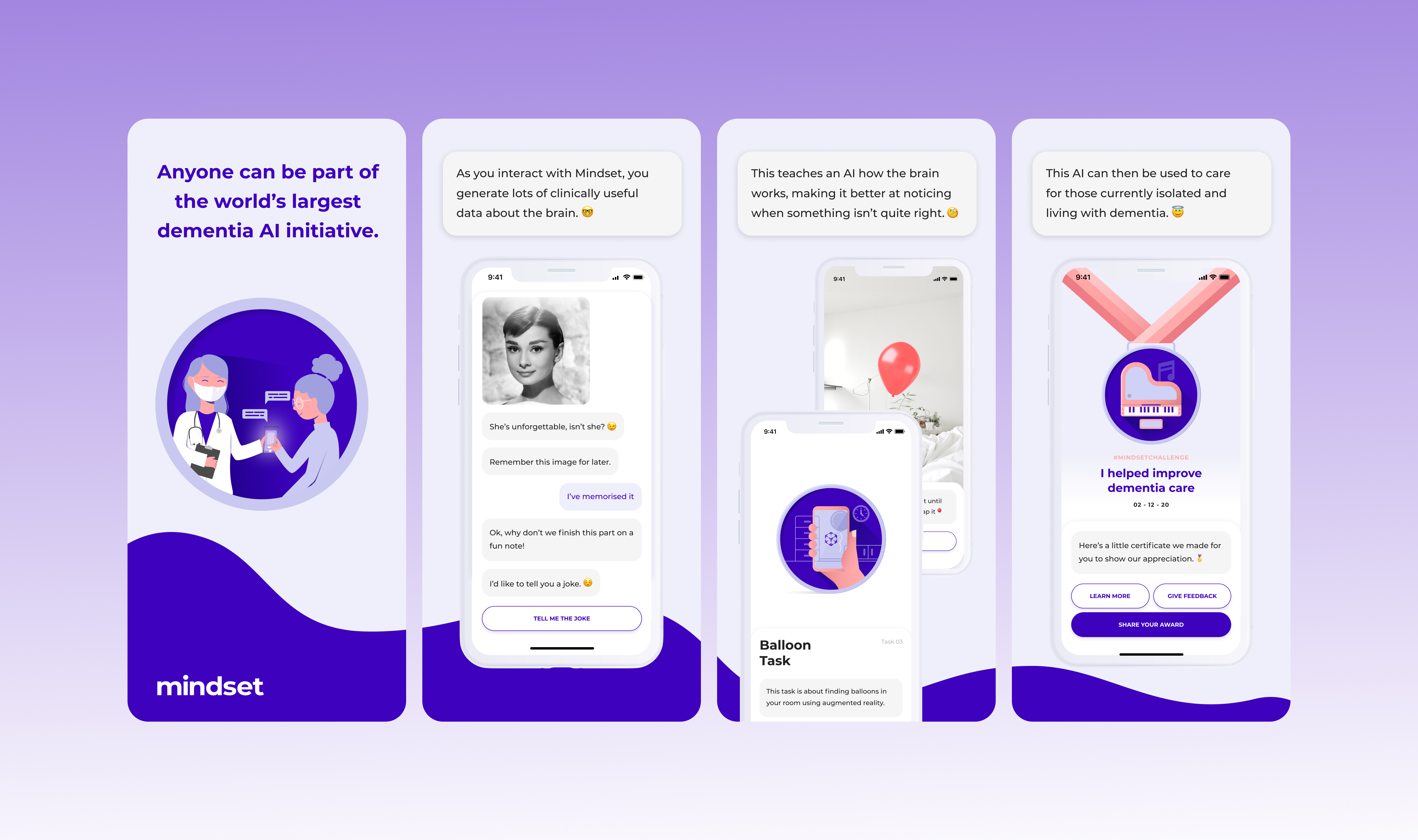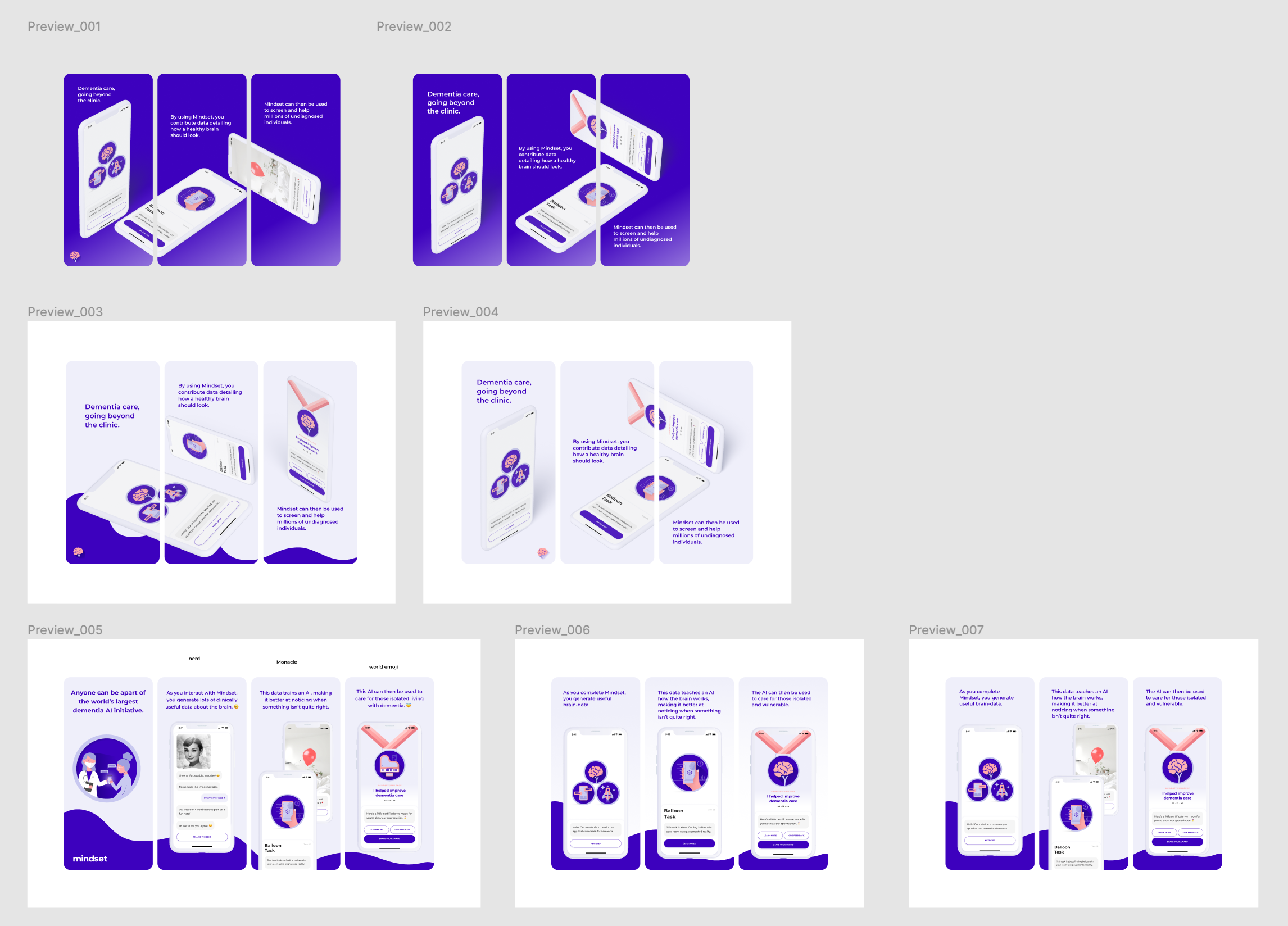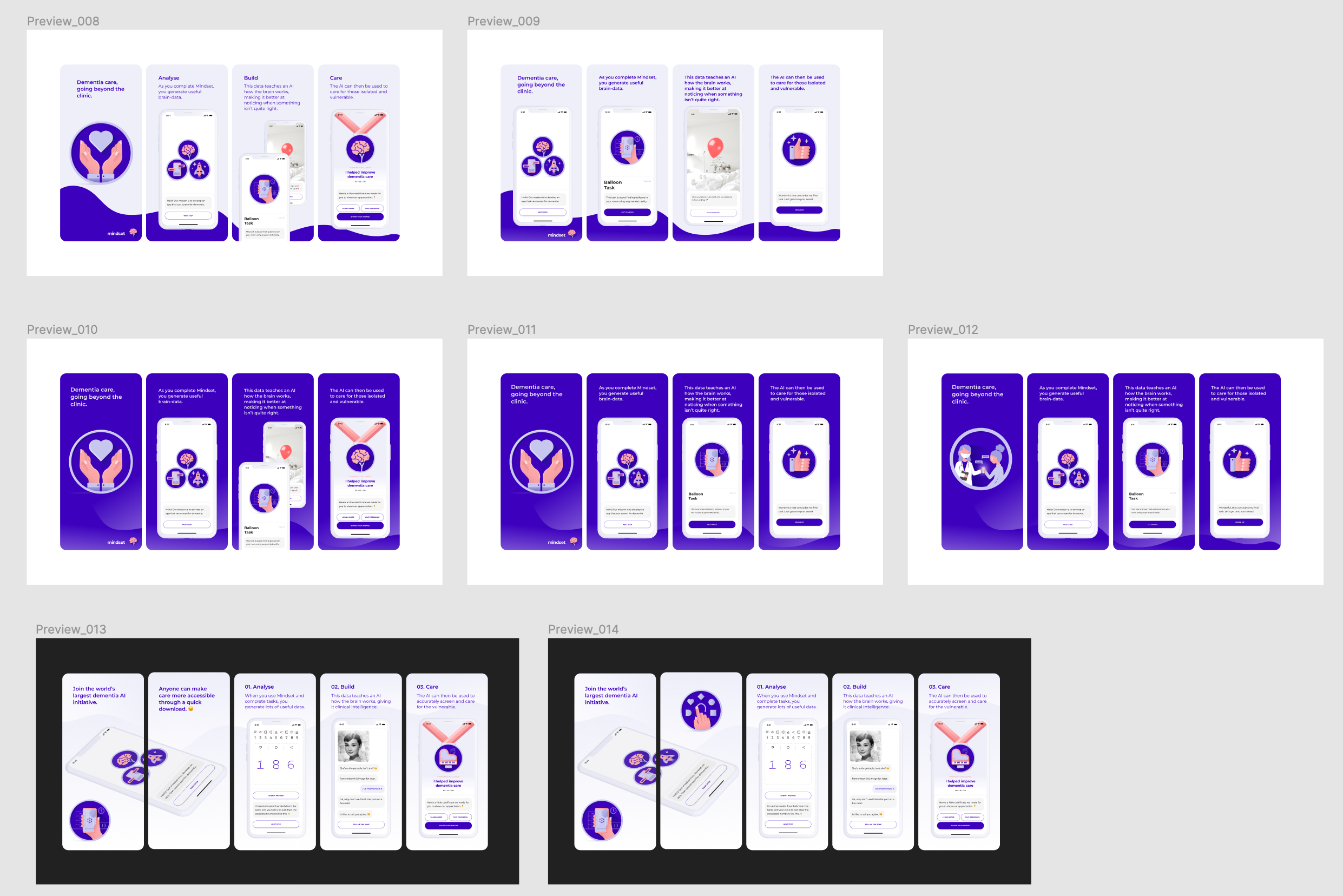Mindset
Improving accessibility to dementia care through fun cognitive tasks using an AI.

PROJECT DETAILS
Product: iOS app preview
Role: UX/UI Designer
Tools: Figma
Timeframe: 1.5 weeks
Background
31 million people and their families are affected by the danger and distress of living with undiagnosed dementia. Mindset, or Mindset4Dementia, is an app that allows users to complete fun cognitive tasks to help improve dementia care, and make it more accessible. The data from these tasks helps teach an AI how the brain works, and can then be used by a future AI to provide remote dementia care to those who are isolated and vulnerable. This data can also help the AI to screen others for dementia, as early prognosis is an incredibly important step in dementia care itself.
Project Goal
As part of a 1.5-week internship trial period, my task was to create the app store preview for this product. Our goal was to explain what Mindset involves, why anyone can use it, and how every user’s contribution can make a big difference. I also communicated directly with the Mindset team, mainly our CEO, to ensure that the style of the previews fit with Mindset’s brand - enticing, modern and neat.
Iterations
Despite the 1.5-week time constraint, I wanted to ensure that designing the previews was still an iterative process which gave me the chance to get feedback from Mindset to improve upon the designs. Here are some examples:


Final Preview Designs
Check it out on the app store: https://apps.apple.com/us/app/id1530813748
This was the final design we decided on after communicating for the past 10 days with the CEO of Mindset. I created the illustration on the badge in the first image and the overall preview design, although the UIs within the phone screens were created by the very skilled full-time UX/UI designer at Mindset!

Challenges + What I Learned
The main challenge I faced was learning how to accurately convey a story through a few images, while still letting the product brand shine through. In addition, I was remotely collaborating with a team in a nearly opposite timezone from my own which could be challenging at times.
I learned the importance of being responsive to feedback and ensuring that the client feels heard, while also taking the users’ perspective into consideration. Elements like app previews are often the first impression that users get of a product, and so it is important to prioritize accessibility while still conveying the product’s message accurately.
I also learned that cases like this put even more emphasis into the importance of communicating both responsively and clearly, ensuring that my design ideas are concise and descriptive enough to limit confusion/back-and-forth between myself and the Mindset team.
I am incredibly grateful for the opportunity to integrate my academic background in neuroscience with design, and I truly believe that this product can help many people by improving dementia care.
